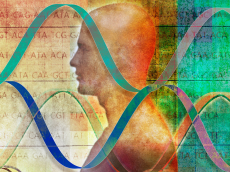
Email: stella@papersnail.co.uk
Total Article : 28
About Me:Sixth form student studying Politics, Biology and Psychology. I'm interested in a range of topics such as music, current affairs, women's issues and world politics.

In psychology, free will is the idea that each individual is capable of self-determination – that we can all control our behaviour and are not acting in response to any external or internal controlling forces. Free will is championed by humanistic psychologists such as Carl Rogers, who argue that as long as one believes that their behaviour is controlled by other forces – one cannot begin to grow or change that behaviour. Maslow, another humanistic psychologist, described this self growth idea as ‘self actualisation’ – a realisation of one's potential to change their behaviour and grow. The concept of free will underpins these ideas as it supports the idea that human behaviour is unpredictable and changeable.
However, some psychologists deem the free will idea as an ‘illusion’ – where the fact that we have choices, tricks us into thinking we have a choice, where actually, the outcome of our choice is predetermined by past experiences or biological factors such as genes. Various experiments using brain-scanning techniques have shown activity in areas of the brain controlling movement, before the individual had actually made the conscious decision to move. This revelation supports the idea of pre-determined actions – that the movement was always going to happen, before the individual had consciously decided to carry it out.
At the other end of the spectrum is determinism, this is the view that external or internal forces control an individual’s behaviour, and that behaviour is predictable. There are a few types of determinism, one being genetic determinism. Genetic determinism is the concept that our genes play a role in determining our behaviour – good evidence for this is twin studies. Studies show that in identical twins, there is an 80% similarity on intelligence. This confirms the idea that at least some of our behaviour is pre-determined by our genes. However, it is highly unlikely that it will ever be possible to deem that all human behaviour is down to genes because there are so many other types of determinism in play – for example environmental determinism. In the intelligence example, the environment must make up the other 20% for the intelligence of the twins. This is the basis for environmental determinism – championed by Behaviourists, who believe that all behaviour is caused by previous experience, through classical or operant conditioning.
However, there are many problems associated with the concept of predetermined behaviour. One of these being, if we can pass off our behaviours as predetermined and unchangeable, it allows for us to excuse our behaviour as out of our control. Determinism also poses an issue in treating mental disorders, this is because if disorders are deemed to be determined by human biology, it will not allow for the consideration of other helpful treatment techniques such as CBT – which is proven to work.
Image Credits: http://www.npr.org/sections/health-shots/2016/05/16/478204708/the-power-of-genes-and-the-line-between-biology-and-destiny

0 Comment:
Be the first one to comment on this article.